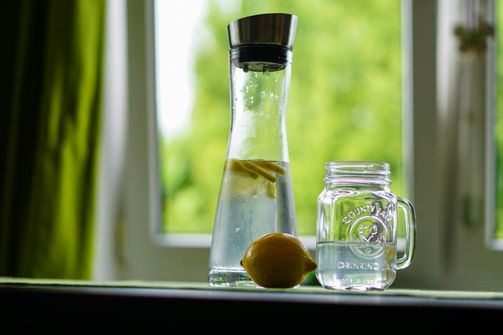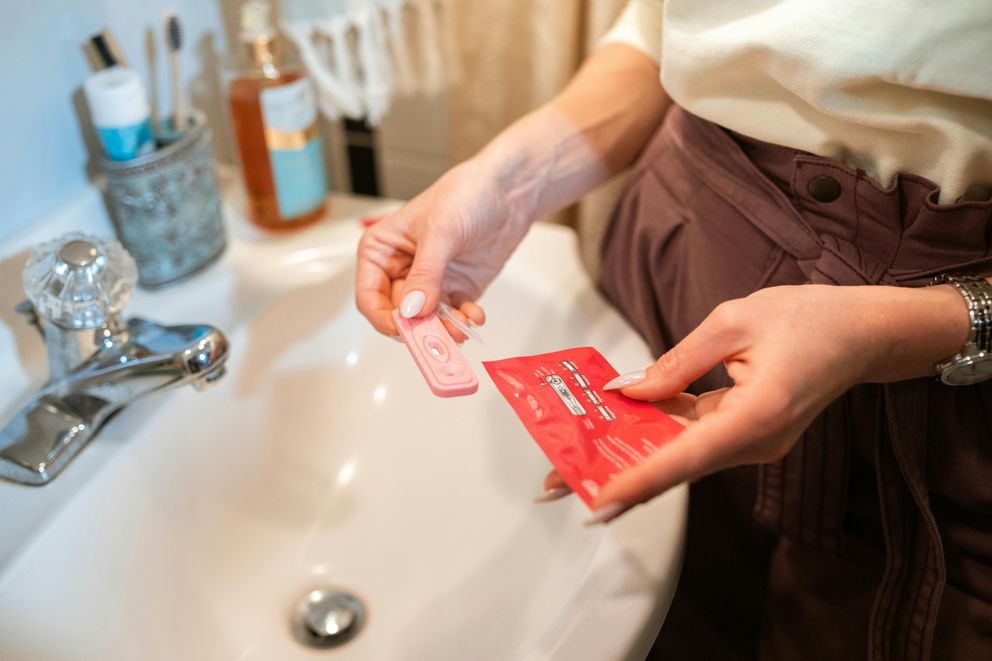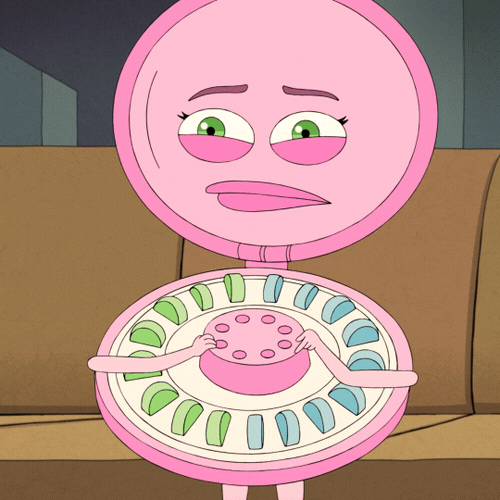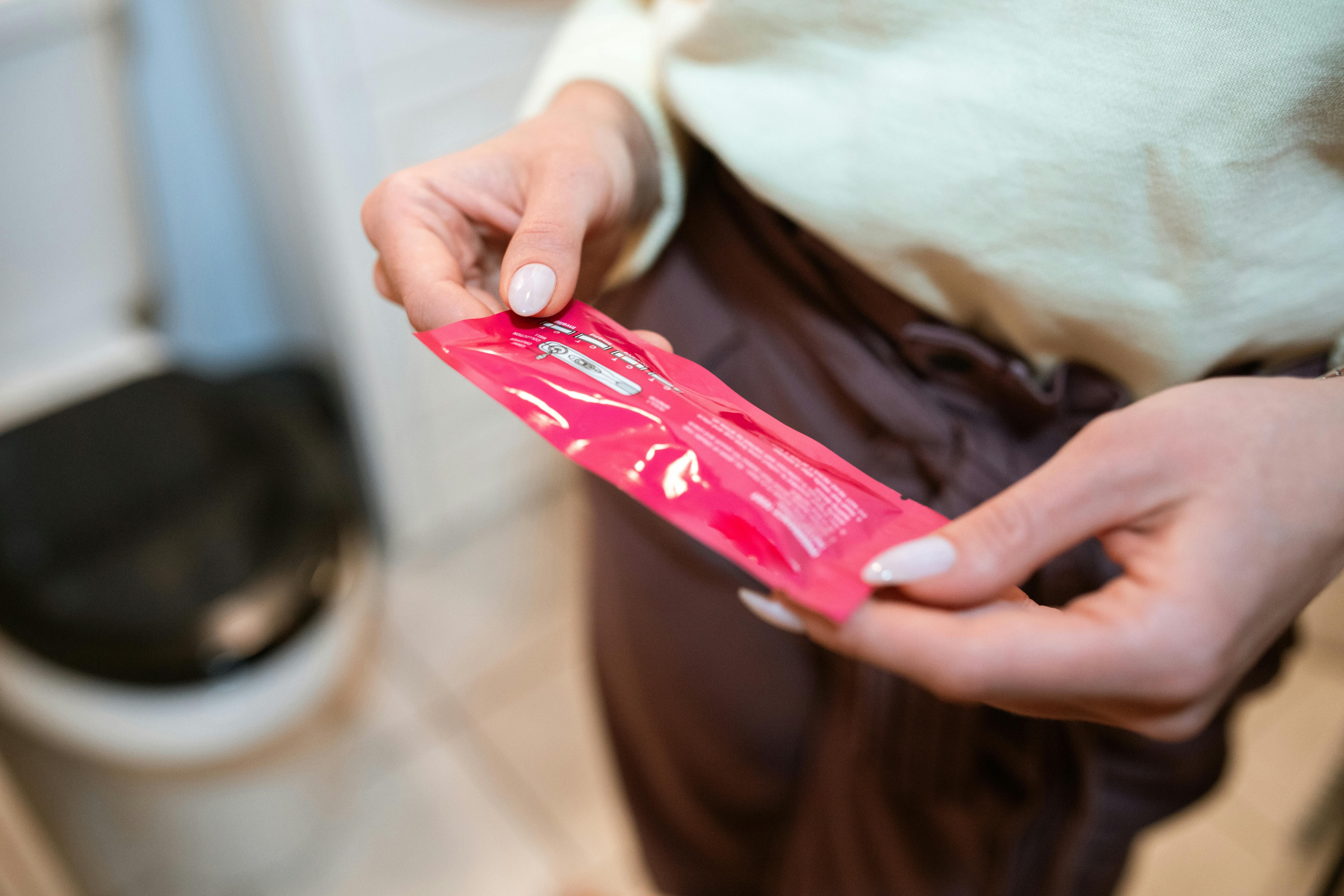
Separating Fact from Fiction: Do Detox Drinks Really Work?
Detox beverages have gained massive popularity in recent years, with promises of everything from quick weight loss to complete bodily "cleansing." Fro...

If you’re like many women, juggling weight loss and birth control can feel like a tricky balancing act. You’re eating right, working out, and yet… the scale won’t budge. Could your birth control be to blame?
Spoiler alert: It can play a role, but it’s not as straightforward as you might think. Hormonal birth control doesn’t just prevent pregnancy—it can affect how your body stores fat, your appetite, and even how much water you retain. But don’t worry! Understanding how it all works will help you manage your weight loss goals, even while using birth control. Let’s break it down in a fun and simple way.

Hormonal birth control methods—whether it’s the pill, patch, IUD, or injection—release hormones like estrogen and progestin to stop pregnancy. But those hormones can affect more than your reproductive system. They influence your metabolism, appetite, and even how much water your body holds on to.
One of the most common things women notice after starting hormonal birth control is an increase in appetite. You’re hungry all the time, and your go-to snack becomes anything in sight (yes, even the office donuts).
Fact Check: A study in the Frontiers in Neuroendocrinology found that women on hormonal birth control were more likely to experience cravings, especially for carbs and sweets. Sounds familiar, right?
Tip to Beat It: If you’re craving everything but the kitchen sink, it’s time to outsmart your hormones. Focus on meals rich in protein and fiber—they keep you fuller for longer. Instead of chips or candy, try healthy snacks like almonds, apple slices with peanut butter, or a Greek yogurt with berries. Trust me, your waistline will thank you.
Another sneaky effect of hormonal birth control is water retention. If you’ve ever felt bloated for no apparent reason, you know how frustrating this can be. The extra estrogen in some birth control methods can cause your body to hold on to water, making the scale creep up (but don’t panic—it’s not fat gain).
True or False? Up to 60% of women experience some form of bloating or water retention after starting birth control. But here’s the good news: this usually goes away after your body adjusts.
Quick Fix: Stay hydrated to flush out that extra water! Drinking more water may sound counterintuitive, but it works. Aim for at least 8 glasses a day. Also, cut back on salty foods, which can make water retention worse. A sprinkle of potassium-rich foods, like bananas or avocados, can also help reduce bloating.
Did you know estrogen plays a role in how and where your body stores fat? Some women notice that their body composition changes after starting hormonal birth control. Estrogen can encourage fat to settle in areas like the hips, thighs, and lower abdomen.
Fact Check: Research from the Biomedicines confirms that higher estrogen levels are linked to increased fat storage, especially in the lower body. So, if you notice your jeans feeling a little tighter around the waist, that could be why.
Tip: The best defense? Strength training. Lifting weights or doing resistance exercises helps build lean muscle, which burns more calories even when you’re at rest. Incorporate moves like squats, lunges, and deadlifts into your routine. Not only will you tone up, but you’ll also boost your metabolism, making it easier to shed that stubborn fat.

Okay, so now that you know how birth control can affect your body, let’s talk solutions. You can absolutely lose weight while on hormonal birth control—you just need a smart strategy. Here’s how.
This isn’t the time for fad diets or cutting entire food groups. Focus on whole, nutrient-dense foods that fuel your body and keep you satisfied.
Example Meal Plan: Start your day with a protein-packed breakfast like scrambled eggs with spinach and avocado. For lunch, go for grilled chicken or salmon with a big salad. Need a snack? Keep it simple with hummus and veggies or a Kind Bar. And for dinner, something hearty like a turkey chili or a quinoa bowl with roasted veggies will keep you full and happy.
Stat to Know: A study published in Current Developments in Nutrition shows that eating a diet high in protein and fiber helps regulate appetite, making it easier to avoid overeating.
Regular exercise is key to managing weight, especially if your birth control is affecting your metabolism or fat storage. You don’t have to spend hours at the gym—just 30 minutes of activity most days will do wonders.
Tip: Mix up your workouts! Cardio helps burn calories, while strength training builds muscle and boosts metabolism. Try a combo of both with workouts like cycling, Zumba, or even a HIIT routine. Apps like Peloton or FitOn make it easy to squeeze in a quick session, even on busy days.
Hormonal birth control can mess with your cortisol levels (the stress hormone). And when stress hits, many of us turn to food for comfort. Stress can also lead to more fat storage around your midsection—no thanks, right?
Fact Check: A study by UCLA found that women on hormonal birth control can have elevated cortisol levels, especially if they’re stressed.
Stress-Busting Tip: Find ways to unwind, whether it’s through yoga, meditation, or even just a walk outside. Apps like Headspace or **Calm **offer guided meditations to help you chill out. The calmer you are, the easier it’ll be to resist those emotional eating urges.
Water retention is no joke, but staying hydrated helps flush out the excess water your body’s holding on to. Plus, drinking water can help you feel full and avoid mindless snacking.
Tip: Carry a reusable water bottle with you everywhere. Brands like Hydro Flask or Nalgene are great for staying hydrated on the go. Set a goal to drink 8 glasses a day, and more if you’re working out.
Bonus Tip: Add a slice of lemon or cucumber to your water for a refreshing twist. It’s a small hack, but sometimes the little things make a big difference!
Because hormonal birth control can cause weight fluctuations, don’t rely solely on the scale. Track Your Progress in other ways, like how your clothes fit, how strong you feel during workouts, or even by taking body measurements.
Tip: Use apps like MyFitnessPal or Fitbit to track your meals, workouts, and water intake. This helps you stay on course without becoming obsessed with daily weight changes, which are often temporary.
This article is for informational purposes only and is not intended as a substitute for professional medical advice, diagnosis, or treatment. Always consult your doctor or a qualified healthcare provider before making changes to your diet, exercise routine, or birth control method. Hormonal birth control may affect individuals differently, and it’s important to find the best option for your unique needs.
Q1: Does hormonal birth control cause weight gain? A: While some women may experience weight gain due to increased appetite, water retention, or changes in fat storage, others may not notice any significant changes. The effects can vary based on the type of birth control and your individual body.
Q2: How can I manage water retention caused by birth control? A: Stay hydrated, reduce your salt intake, and focus on potassium-rich foods like bananas, avocados, and leafy greens. Drinking herbal teas, like dandelion root tea, can also help flush out excess water.
Q3: Can I lose weight while on birth control? A: Yes! You can still lose weight while using birth control by maintaining a healthy diet, exercising regularly, and managing stress. While hormonal changes may present challenges, consistency is key to achieving your weight loss goals.
Q4: Which birth control methods are least likely to affect weight? A: Progestin-only methods like the mini-pill or IUD tend to have less impact on weight compared to methods with higher estrogen levels, which may cause water retention or changes in fat distribution.
Q5: How do I reduce stress-related cravings while on birth control? A: Practice stress-relief techniques such as meditation, deep breathing, yoga, or journaling. These can help lower cortisol levels, which are linked to stress-induced cravings and weight gain.
Q6: Will switching birth control methods affect my weight? A: Weight changes can occur when switching birth control methods, but these are often temporary as your body adjusts to the new hormone levels. If you’re concerned about weight changes, consult your healthcare provider for personalized advice.
Q7: How should I track my weight loss while on birth control? A: Instead of focusing solely on the scale, track your progress through body measurements, how your clothes fit, and your energy levels. Apps like MyFitnessPal and Fitbit can help you monitor your food intake and exercise habits for a more comprehensive view of your progress.
Losing weight while on hormonal birth control doesn’t have to be an uphill battle. Yes, it can be tricky with all the appetite changes, water retention, and hormonal shifts, but with the right approach, you can still reach your weight loss goals. Focus on Balanced Nutrition, consistent exercise, staying hydrated, and managing stress—your body will thank you!
Every woman’s body reacts differently, so listen to yours. Find what works for you, and don’t be afraid to adjust as needed.

Detox beverages have gained massive popularity in recent years, with promises of everything from quick weight loss to complete bodily "cleansing." Fro...

Staying hydrated is essential for your overall health, but plain water can get a little boring. The good news is that infused water—packed with fruits...

In recent years, the rise of non-alcoholic spirits has taken the social scene by storm, offering women (and everyone!) the opportunity to enjoy a craf...

Socializing with cocktails can be fun, but many traditional drinks are loaded with sugar and artificial ingredients that may leave you feeling less th...

The Female Athlete Triad is a serious medical condition that affects physically active women and girls, especially those involved in competitive sport...